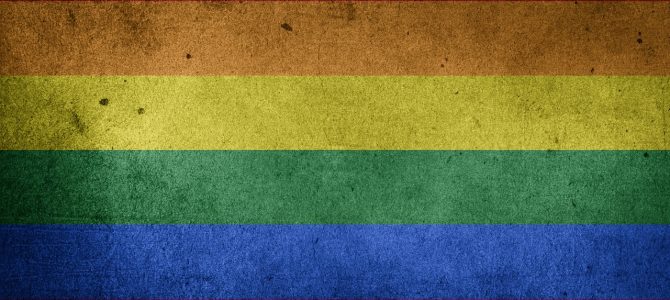
Inquiring minds have often wondered why The New York Times makes the editorial decisions it does. Now we scratch our heads yet again at a recent piece entitled, “The Hottest Body Part? For a Sapiosexual, It’s the Brain.”
What is a sapiosexual, you ask? Anna North is here to answer that question—one you never would have asked had you not read this sexy headline from the Times. She profiles one Aboubacar Okeke-Diagne, 23, who says he’s disappointed in internet pornography for its use of “pointless small talk.” North writes,
For Mr. Okeke-Diagne, being sapiosexual means intellectual conversation is a key part of dating and sex. While some couples might exchange racy photos or texts, he once sent a woman he was seeing a multipage erotic story he had written that included references to the Julian calendar, the decimal system and global climate change. Writing the story was such a turn-on for him that he tried to find similar erotica online — with little success.
Other self-identified sapiosexuals reported their erotic experiences. Ms. Cohen said she’s had “purely sapiosexual” experiences defined by “intense conversation” and, confusingly, no sex. As she describes one encounter, “I was so amazed at how fluid the whole conversation was…I could feel something happening inside me.” These particular intellectuals aren’t short on drama.
North reports that the concept of sapiosexuality “has been quietly gaining traction in recent years.” (Very quietly.) But the term can now be found in an “expanded list” of sexual orientations on OKCupid, along with “transfeminine,” “genderfluid,” “two-spirit,” “heteroflexible,” and “demisexual.”
We Use -Sexual Suffixes To Validate Our Feelings
This last term, demisexual, has been described courtesy The Washington Post. Writing about her own sexuality, Meryl Williams explains her sexuality as “taking a while to warm up.” Williams now identifies with demisexuality after taking some time to “question” her sexuality and stumbling upon the term on Twitter.
“Demisexuality is when a person doesn’t feel physically and sexually attracted to another person unless they feel a deep, emotional connection to them,” she writes. She confesses how she “used to feel guilty” for not engaging sexually as quickly as her partners would want, but now feels relieved, even though she’s never met another demisexual, that “a term for her sexuality exists.”
Okeke-Diagne and Ms. Cohen come off as proud to be “sapiosexual,” while Williams merely expresses relief for her “demisexuality;” but as with practically every other term with a -sexual or -gender suffix, these are technical terms that, while they may or may not have scientific merit, give one’s feelings or preferences validity. Neither Aboubacar Okeke-Diagne or Williams need their labels as sick people do, as a brief way to explain a set of symptoms to others (i.e. “I have cancer” or “I’m clinically depressed”), or as an English teacher needs the term “dangling participle” to quickly point out a grammatical error.
After all, Williams and Okeke-Diagne must explain what “demisexual” and “sapiosexual” mean anyway (unless they’re conversing in a closed Facebook group or with the 0.5 percent of OKCupid users who share the identity), so it’s not as if they are communicating their “orientation” more effectively by using the word. Rather, “demisexuals” and “sapiosexuals” latch onto this term because it bestows legitimacy, even a sense of specialness, on an aspect of his or her personality. I do not believe they are seeking to be better understood so much as craving an identity, and perhaps camaraderie with others sharing in the shelter of the term’s umbrella.
It is no wonder, that Daren Stalder, who coined the term “sapiosexual” was not an academic seeking an appropriate term to describe a phenomenon he was studying, but simply an engineer from Seattle who conjured up a sciency latin-based word to denote his own romantic preference.
We’re Obsessed With Granting Validation
This culture is obsessed with granting validation and special acknowledgement, even privilege, by affixing a unique label to any characteristic or behavior that might ever so slightly deviate from the perceived norm. We all know there is power in names, but it’s been taken so far that to grant a special name is to cast a warm tingly bubble over the feelings of those who fall under its definition—as if we don’t have thick enough bubbles already.
Such individuals generally expect the majority who are “normal,” who don’t have special names, to treat their various orientations and identities with the appropriate deference, and to swallow every line from armchair activists about their “naturalism,” social legitimacy, even beneficence. If you identify as “pansexual,” we must assume that’s just how you’re wired. If you’re “transgender,” we must affirm that trying to live as the opposite sex, despite your biology, is a totally valid and healthy lifestyle. We might even be expected to believe gays and lesbians make better parents (even though they don’t).
Activists within the fields of social science, white-coated magicians, nudge our perspectives, tinkering with definitions related to “gender identity” and sexuality (changing “gender identity disorder” to “gender dysphoria,” for instance).
You might say this work is progressive and enlightened. But regardless, you must acknowledge the power of names and consider how much credence is given to the PhDs that support both the new terms, and the new definitions for terms previously established.
Our Feelings Are Deemed More Important Than Ethics
This affinity for adopting new labels stems from a growing belief, especially among young adults, that one’s own feelings should be validated above morality, or even reality. For instance, Williams may not feel privileged, per se, to be “demisexual,” but she appears to need the term to excuse her lack of desire for engaging in sexual libertinism. To have a name for your brand of sexuality is to have validation—and in William’s case, if her community doesn’t accept a moral objection to libertinism, she has all the more need of a special label to shield her. Regardless, “demisexuality” brings her relief and affirmation, which are of utmost importance. It protects “the feels.”
Cultural and religious institutions, the social sciences, and even medicine have been harnessed for the expansion of this doctrine of “sola feels” (as aptly termed by The Babylon Bee). They house the credentialed wizards, from reverends to sociologists, who bestow names, create victim classes for the marginalized, and validate those who assert their own special identities.
Progressivism and the snowflake mentality together are a dangerous combination. On one side of the coin, academics seek to unravel reality, and on the other, insecure individuals crave the privilege or protection of a special designation. This country has already hit a major milestone on the agenda of the New Sexual Revolution (my placeholder for the ever-changing “LGBTQ+”) with gay marriage, re-imagined as “marriage equality.” The EEOC decided in 2012 that sexual orientation is protected under Title VII. Not to be outdone, federal courts have begun ruling that sexual orientation is protected under Title IX as well. Another milestone may soon be reached, as the 7th Circuit Court of Appeals ruled that a transgender student has the right to use the bathroom of his gender identity, and not his sex, under the same Title.
Interestingly, the EEOC’s website repeatedly refers to “LGBT” discrimination, yet just a few years after that decision, these mere four letters are ridiculously outdated. The New Sexual Revolution foments a ballooning conglomeration of letters, numbers and symbols representing a coalition of grievance-hawkers who demand new rights: it now often includes “Q,” sometimes “2” (for two-spirited), and, comically, the catch-all “+.”
Obergefell Represented A Cultural Turning Point
To understand why new sexual identities multiplying and given enough credibility to be added to the drop-down list on dating sites, it helps to look back to 2015. Those who refer back to Obergefell as the “un-defining” of marriage, not its “redefining,” are quite right. It was defined as the union of a man and a woman, and that definition was supported by natural law. But now that emotions have largely replaced morality, the door is open for marriage to be anything: why not three, four, or five spouses? Why not a parent and child? Why not sologamy?
Because the landmark decision was based largely off emotive reasoning, not legal precedent, Obergefell catalyzed a potentially infinite expansion of terms and their definitions (and redefinitions) in the way of sexuality. Some of those are already codified in anti-discrimination laws. Yet if we deny that an objective moral standard exists by which we can judge a sexual behavior or attitude, which “sola feels” does, then we get what we are currently witnessing: the explosion of a libertine view of sexuality and the cementing of “personal truth” as the malleable rule by which we live our lives.
But “personal truth” is no truth at all; meaning must be grounded in reality. It isn’t just marriage that is being robbed of its significance (as the union of a man and a woman), but the whole of sexuality, and maybe even humanity itself.
‘Sola Feels’ Is About Self-Affirmation, Nothing More
And that is not unintentional. Left alone, “sola feels” has no higher purpose except affirming the self and affirming others who are affirming themselves. It is directionless except to circle back to one’s own desires, flinging grievances in the faces of moral objectors in an endless, self-absorbing cycle. Yet in the hands of progressives, who empower the government to control our relationships, its energy is directed toward that end, mostly unencumbered by the ever lessening weight of objective morality’s recognition within the culture. Feelings over reality can’t be thought of as merely a personal choice, then, but rather a doctrine dictated to the masses by elite progressive intellectuals.
This is how we got the Obergefell ruling and the continuing adoption of transgender “rights” throughout the U.S. It is how seeds of suppression are being sown regarding breastfeeding campaigns to protect the irreality of “transgender women.” It is how we got participation trophies and “safe spaces” on college campuses, journal essays celebrating “tranimal” identities, corporate micro-aggression training, and “parent 1 and parent 2” on federal forms.
In other words, it is the regression from morality that spawns modern progressivism in policy and “sola feels” in culture. “Sola feels” promotes further cultural degradation of morality through its relentless focus on the self and rejection of reality. Eventually, it comes round to influence policy. Ironically, it is through these policies that more morally predicated attitudes, outside the aggrieved alphabet (the holdouts for reality) will be ridiculed, censored, and—particularly for the youth under government education—conditioned out of them. If you’re branded a hater for saying men are men and women are women, then Stella Morabito’s claim that society is experiencing mass delusion isn’t radical at all.
You may just glance at a Time’s headline about “sapiosexuals” and hot brains, snicker, and thumb past it to more serious matters. But next time you see one like it, remember how we arrived at this manifold of sexual identities, and consider where it is leading us.









